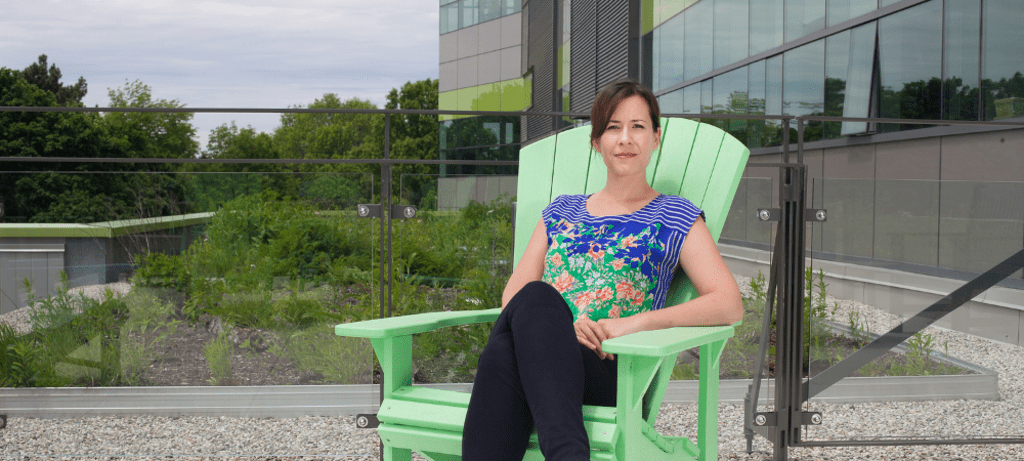Good COP/bad COP? Waterloo's delegation discusses upcoming climate change negotiations
Estimated reading time: 4 minutes
From November 6-18, the world will come together in Sharm El Sheikh, Egypt, for the international climate change negotiations at the United Nations Framework Convention on Climate Change (UNFCCC) annual Conference of the Parties (COP). The University of Waterloo, through the Waterloo Climate Institute, is an official observer to COP27 and will send an in-person delegation of top student leaders and faculty researchers to bear witness to the negotiations. Before the University’s COP27 delegation departs, the Waterloo Climate Institute held an in-person discussion with them to reflect on the crucial issues that need to be tackled, Canada’s role in the negotiations, and what outcomes they hope to witness and achieve.
The event kicked off with host, Dr. Ian Rowlands, providing a brief primer on the international negotiations and related agreements, touching on the history of COP, the milestones achieved and missed, and his personal experience as a previous observer. Following the presentation, delegates Dr. Zahid Butt, Dr. Sarah Burch and PhD candidate Isra Saeed took the stage for the discussion. Here are five highlights from that conversation:
1) We must increase our adaptation and mitigation efforts
The urgency to act decisively to tackle climate change has been building with each successive COP and the global community is now at a point where we are not on track to limit warming to less than 1.5 degrees. In fact, the average annual greenhouse gas emissions over the last 10 years were the highest in human history. But, for the first time ever, we have evidence from around the world that climate solutions are working. The solutions to climate change exist, we just have to adopt them.
2) Underrepresented actors must have a bigger voice at the negotiations
Each of the delegates underscored the need for greater parity in the negotiations. Isra Saeed pointed out that in the past, pathways have been determined by the global North, not the global South – where the impacts of climate change are often felt the hardest – and money to combat climate change has been given to organizations that don’t have enough capacity or corrupt governments that don’t distribute the funds equitably. For this reason, it’s crucial to bring the local communities of the global South to the table to decide and influence the best pathways to adapt to and mitigate climate change. She also pointed out that the research community in the global South is also affected by these divisions. When asked what might be done to bridge this gap, Saeed offered that greater efforts by researchers in the global North to co-supervise graduate students with professors from universities in the global South, and vice-versa, would be an excellent step forward.
3) Canada’s historical greenhouse gas emissions reduction efforts have been checkered – the time to act is now
While there have been positive steps taken, such as Canada’s commitment to phase out coal, Dr. Burch emphasized that the country’s efforts have been uneven. In fact, at previous COP’s, Canada has won the ‘Lifetime Unachievement’ Fossil Award and ‘Colossal Fossil’ award, underscoring the urgent need for greenhouse gas emissions reduction efforts to be scaled up to meet national and international commitments. She flagged that Canada is set to make important announcements at COP27 regarding their new National Adaptation Strategy that should be on our radar.
4) Our health systems are not resilient to climate change, so let’s fix that
Dr. Butt emphasized that with extreme weather events growing in frequency and effect, there is a lot of work to be done to improve early warning systems and vulnerability assessments to understand where our efforts should be focused. Key insights from Health Canada’s latest national report, Health of Canadians in a Changing Climate, echo his recommendations and the knowledge gaps facing Canadians. Check out his discussion with the lead authors from that report and other Waterloo experts from March 9, 2022.
5) Let’s build connections and work together
There was resounding consensus from the panel that we need more interdisciplinary projects and collaborations to tackle climate change. This is a key reason why sending delegates in-person to the negotiations is so important. It’s a great opportunity to build trust, foster new partnerships, and electrify the movement! As Dr. Burch reflected, “It’s critical for us to think about how we use carbon and to minimize our personal emissions – including our travel to international conferences. But wouldn’t it be ironic if those of us who care about climate choose not to go to COP to support the negotiations, yet the rest of the world carries on with business as usual?”
The ripple effects of each COP are enormous and impactful. However, as host, Dr. Rowlands, posed the question: will this be a case of ‘good COP’ or ‘bad COP’? Or perhaps somewhere in between? Only time will tell. Stay tuned as we share updates from the delegates on our website and social.
Contact us for media inquiries to learn more about this or other climate change related stories.

